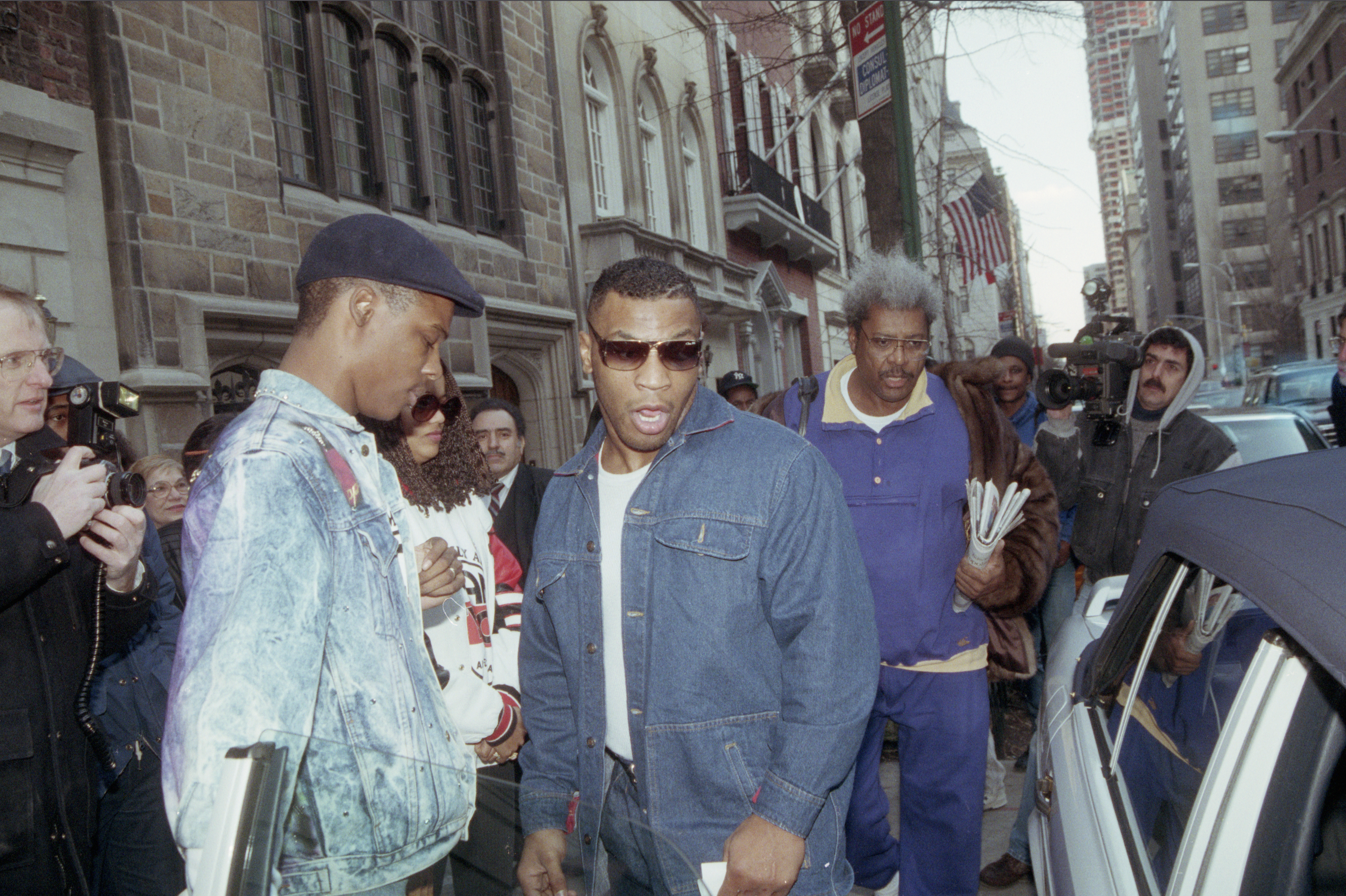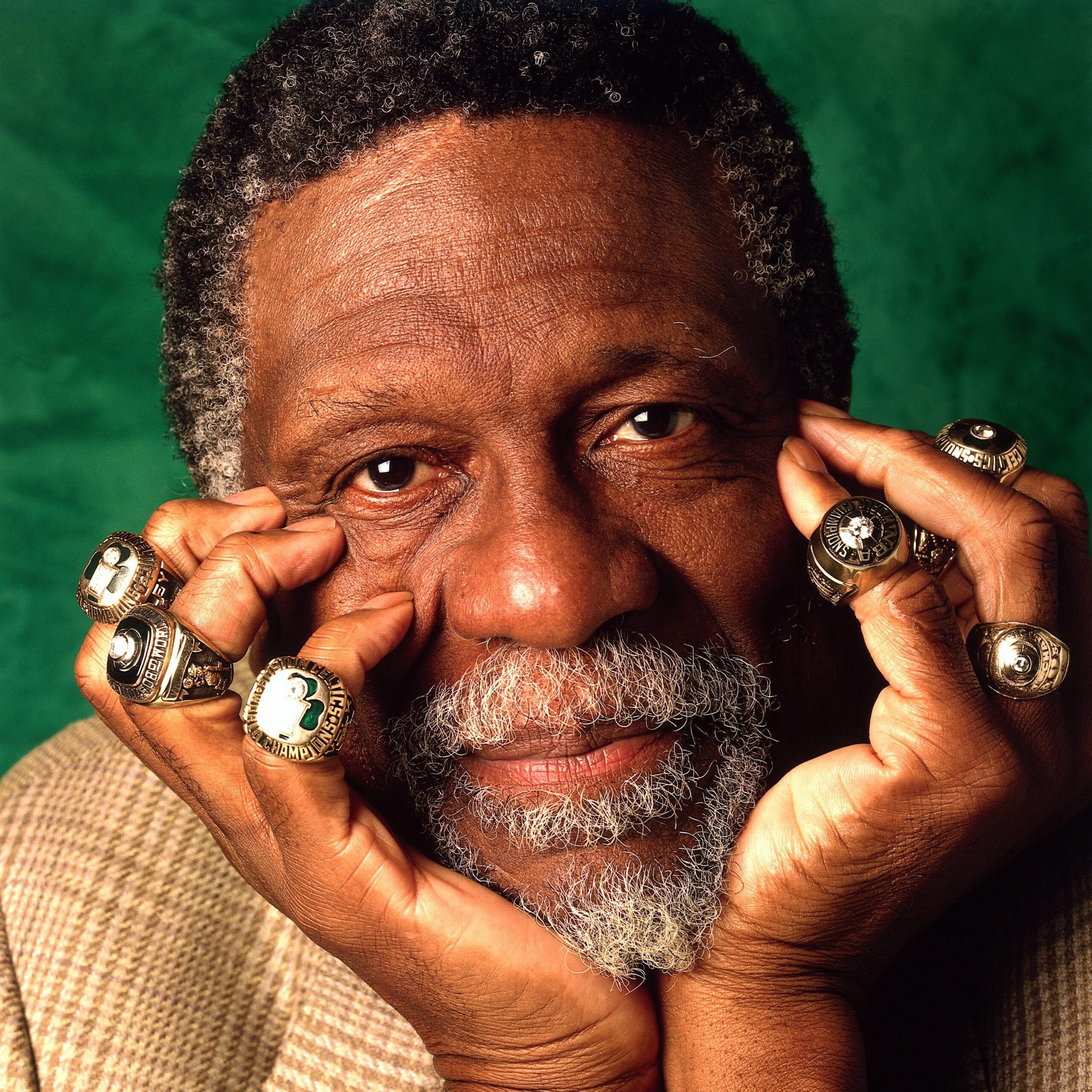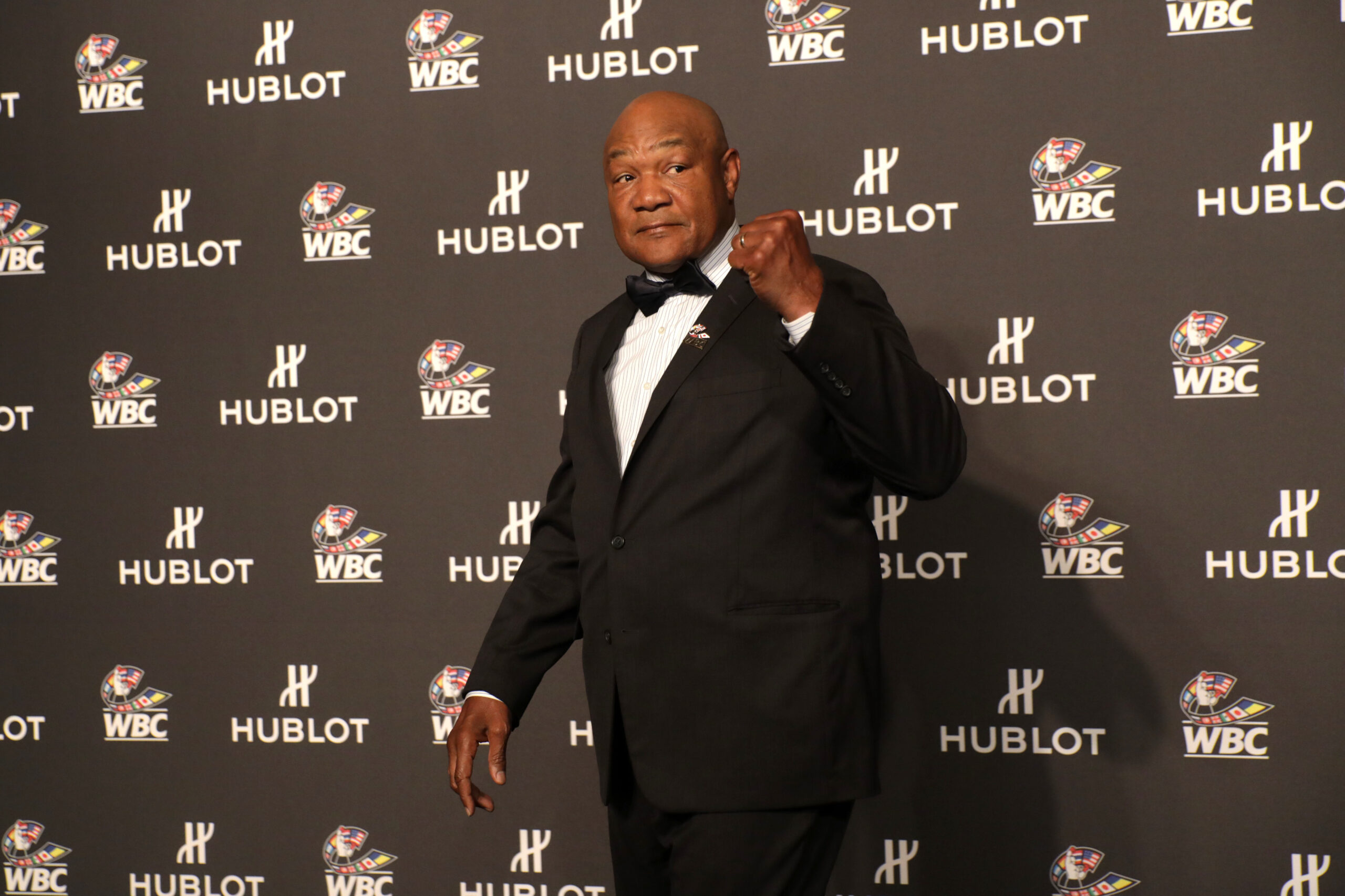The Greatest has passed from us. Born Cassius Marcellus Clay, Jr on January 17, 1942 in Louisville, Kentucky, the man the world would see become an icon beyond measure was destined to be a star even while under the roof of Cassius Marcellus Clay Sr and Odessa O’Grady Clay. He was named for his father, who himself was named after a prominent 19th century Kentucky abolitionist and politician.
A great competitor from the start, tales of young Clay’s uncanny agility were bolstered by claims that he had his little brother throw rocks at him to work on dodging and weaving. The legendary boxer, the devout Muslim, the Black man, he was the very pinnacle of masculine brilliance in his youth and was as wise a statesman as there ever was in his latter years.
(Photo Credit: Getty Images)
In the ring, Ali was wind made solid. He was the unpredictability of bee bop jazz on your eardrum. He was Hip-Hop before Hip-Hop, with a soulful eloquence of dialectic and loquaciousness that was so, so Black.
If he were an actual emcee instead of a rhyming forerunner and catalyst for the game, his earlier nickname, “The Louisville Lip” would definitely suffice. Yes, the champion that was crowned Sportsman of the Century by Sports Illustrated, Yes, the man the BBC named Sports Personality of the Century, the best-selling author of The Greatest: My Own Story and The Soul of a Butterfly. Oh the measure of his attributes to the World, to America and to the Black man cannot be fully constructed in this humble passage.
He finished his career with a record of 56 wins to 5 Losses with 37 KOs, but it wasn’t the numbers that made the world adore him. It wasn’t the feathery footwork or the slippery elusiveness. No, not even his all time great jab. No, it was Ali the man. He embodied everything that he spoke about. It should be required that no other boxer anywhere may ever use the term “People’s Champ” ever, ever again. Muhammad Ali was the demigod of the very term.
What athlete in the history of world has ever inspired the people as he? And it’s not his exploits in the ring. Not the stunning knockout over 7-1 favorite Sonny Liston on February 1964 as 22-year-old Cassius Marcellus Clay Jr to win the world heavyweight championship. Nor does his conversion to Islam or being the only three-time heavyweight champion make him great. Not even the fabled Thrilla in Manilla or the Rumble in the Jungle are measurements of his enormity.
Muhammad Ali was a man of his convictions. Sacrifice. Though he was the consummate wordsmith and stylistic savant, his true measure was in his deeds. As a conscientious objector to the Vietnam War, Muhammad Ali was stripped of his heavyweight title.
He cited his faith in saying “no Vietcong ever called me nigger” in explaining himself.
He would be relieved of the heavyweight championship of the world. No, he gave it up based on how he felt in his heart. In doing so, Ali would also give up nearly four of his prime fighting years.
During his time outside of the ring, Muhammad Ali made ends meet in 1967 by touring as a lecturer at some of the most prestigious institutes in the country, discussing his views on race and politics in America. This pugilistic paragon successfully sparred with many professors and journalists alike, some of whom misconstrued that float like a “butterfly, sting like a bee” applied to wit outside the ring as well as within it.
Because of his stance on the war, the United States government placed Muhammad Ali under surveillance, along with others who were considered a threat to mainstream sensibilities. Malcolm X had been there at the fight versus Liston. As the story goes, Malcolm was said to have betrayed Elijah Muhammad and the Nation of Islam, and had not run into Ali since becoming disavowed.
One day, while accompanied by Warith Deen Muhammad, son of Elijah Muhammad, Ali and Malcolm happened upon one another.
“Ali and Malcolm, their eyes meet. And at that moment, Malcolm says, ‘Brother Muhammad! Brother Muhammad!’ He wants to engage with him, say hello. He doesn’t know Ali is mad at him, that they’re no longer friends. He’s got this half-smile on his face. And Muhammad Ali, just stone-faced, says, ‘Brother Malcolm, you shouldn’t have crossed the Honorable Elijah Muhammad.’ And he essentially walks away from him,” according Randy Roberts – author of Blood Brothers, a telling of the relationship between Malcolm and Muhammad.

His relationship with Malcolm X, and their inability to reconcile, was one of his biggest regrets. Malcolm X would be assassinated approximately one year from their last interaction. Like Malcolm, Muhammad Ali later became a convert to Sunni Islam.
Even though Ali was outspoken both as a boxer and an opponent of white supremacy, he weathered the certain backlash that came with being an outspoken Black man. He leaves as one of the beloved men who ever lived. He was the perfect man of his time. Black, Aware, Pretty and Poetic, Muhammad Ali is still, even on the day of his passing, one of the top 10 most famous people in the world.
His post-retirement years only ensured this great man would become immeasurable in history. This real life superhero once saved a man from committing suicide in Los Angeles. He was a hostage negotiator, three-time heavyweight champion, U.N. Messenger of Peace, and humanitarian.
Ali was diagnosed with Parkinson’s syndrome in 1984. The disease would cause his health and appearance to deteriorate, but the inner flame burned just behind his eyes. On June 2nd, 2016, he was hospitalized with a respiratory condition.
The following day his condition worsened and the Champ was placed on life support. He died late on June 3rd. He is survived by his wife Yolanda “Lonnie” Williams, children; Laila, Hana, Maryum, twins Jamila and Rasheda, Muhammad Ali, Jr., adopted son Asaad Amin, Miya and Khaliah.




